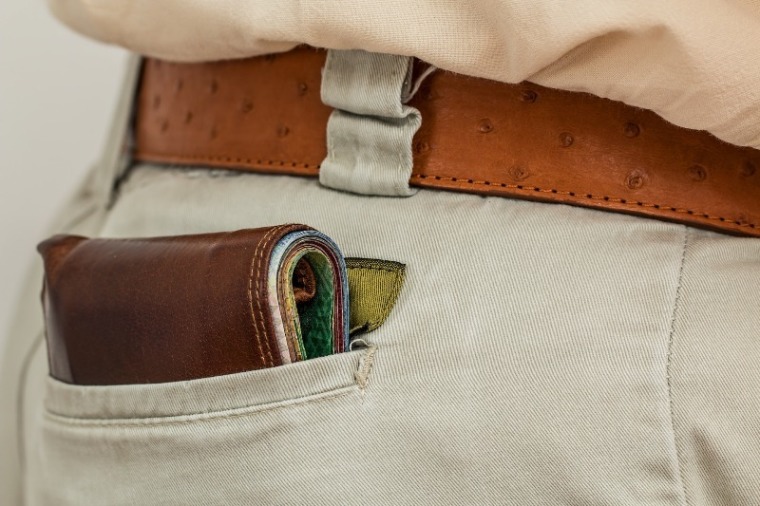
Avarice, I think, is a difficult conversation because we like to be private about our gains. At least, verbally.
Whilst we may show off our finances with our buying power, we don’t talk about our finances directly. It has become a personal part of our life, however, I’m bringing this to our attention publicly. There is always something jarring about that.
We have passwords to our banking systems only we know – passwords that stay internal. Online newspaper pieces are public, external for all to see. Let us acknowledge such jarring feels, and read on.
Economically, I own stuff. Theologically, I own nothing.
When considering ownership through the lens of economics, we are correct to say that we own the things we purchase and are the recipients of the services we pay for. Economically speaking, I own stuff.
When considering ownership through the lens of theology, we are correct to say that we don’t own anything. God owns everything whether or not we purchase something.
Theologically, I am not an owner.
We are caretakers of the cosmos – that’s how we image God, as shown in Genesis 1. We are collectively stewards, not owners, of the parts of creation that remain raw creation, like parks and oceans. But also, the parts of creation we fashion into things, like cars, roads and houses.
Clothes, clogs and computers, are God’s creation too – we’ve just transformed raw materials into these things. The thing about these things, though, is that from God’s perspective, we don’t own any of them. Property isn’t our property. Theologically, your bank account number, your shareholdings, aren’t yours.
Yes, economics is good!
Our human systems allocate who is responsible for which property. We decide who should and shouldn’t expect to be able to have access to which things. Strangers cannot (shouldn’t!) enter your house without your permission because of private property acts, and this is good.
Economic language allows agencies to reallocate resources as needed. This is good.
But here is the risk we play:
We like to trick ourselves into believing we are our own little Kings and Queens. That we are in charge of the stuff we purchase. But the riskiest investment we can make, that will not pay itself off when the King returns, is to allow our economic language to dictate our theological convictions.
If we are going to let money be our master, and not God, we will let our economic language of ownership command our actions.
If we are going to let God be our master, and not money, we will let our theological beliefs command our economic actions.
“No one can serve two masters; for a slave will either hate the one and love the other, or be devoted to the one and despise the other. You cannot serve God and Mammon.” (Matthew chapter 6, verse 24).
But we can quickly forget which master we want to serve. Theological convictions buckle under the weight of societal norms.
Our amnesia leads to our biggest problem hidden in plain sight:
Greed.
What makes it such a problem is that we don’t even use this word anymore. It’s slipped out of our vocabulary. I don’t think we consider it to be in our systems. Yet, greed, I think, stimulates the other issues we share as a nation.
The fundamental problem that we face as Christians in New Zealand today is that the fundamental driver of a capitalist society is the accumulation of capital.
We feel deep in our bones an incessant need to keep gaining more assets.
And capital makes capital.
But when will we have enough? Because Jesus teaches that we are called to stop serving the accumulation of capital (Mammon) and serve God instead.
Two antidotes to greed.
One is generosity, the other, gratitude.
Generosity
Buy and gift, buy and gift. This develops the economy, develops those around us, and develops our spiritual identify into that of a Christ follower. Do we really need that new thing?
Before deciding to buy the next car or the next house, we must think about which God we are serving. Do we really need it?
Buy it for someone else. Someone who won’t have the chance, because of their position in the labour market, to ever access these things themselves. Remember, theologically, these things aren’t even ours anyway. We can only live in one place at a time. We can only drive one car at a time.--
Each time we buy a new asset, give another away.
Gratitude
Sometimes it may feel like we have little, but for a lot of us with little, we still have so much. I’m thinking of the stuff that we completely forget about.
Electricity. The fact that we have running electricity 24/7 on demand is a relatively new human phenomena. It’s phenomenal.
How about being grateful for a hot shower each day? Seriously, that is a big deal. Most generations before us wouldn’t have had such privilege.
The public libraries we have access to. We can just get books out for free. For free! Can you believe it?!
The Six O’clock News plays every single day, which informs us what’s going on around the world. Whaaaaat?
Running, fresh drinking water. Wait, seriously? Fresh drinking water from any tap in my house at any time? Is that actually real?
We have lost touch with where we have come from.
There is endless activity around us that we simply take for granted without realising how mind-blowingly extraordinary things really are.
When we learn to truly be grateful for the unbelievable wealth we dwell in, we realise we don’t need what we think we need. Only in this way can we give more away to be cured of greed.

Andrew Hill is a true-blue Kiwi, born and reared in Aotearoa New Zealand. He has lived between Auckland, Dunedin and Hamilton, chasing his passion: Knowing God. Andrew has studied theology through various institutions, served as a Youth Pastor and as an Associated Pastor at a couple of Baptist Churches, and currently spends time with people with disabilities as a Community Support Worker through Spectrum Care. Andrew has just finished writing his first novel which he intends to publish shortly, and for fun, live streams on twitch.tv @theophilus_nz.
Andrew’s previous articles may be viewed at https://www.christiantoday.com.au/by/andrew-hill